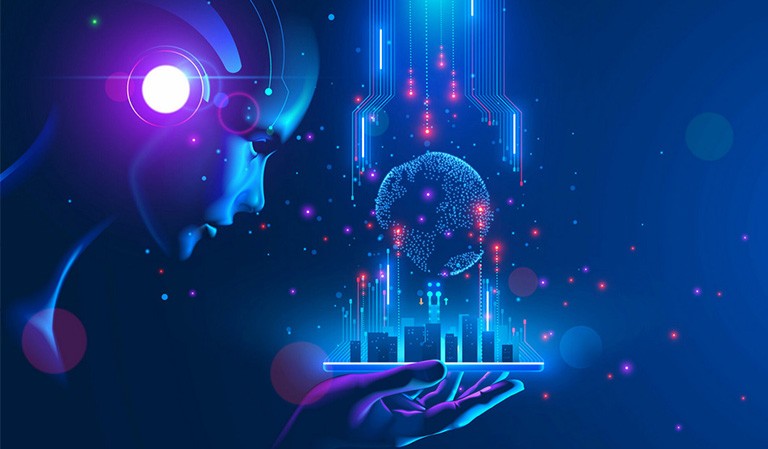Introduction: The Rise of Artificial Intelligence in Modern Industry
Artificial Intelligence (AI) is no longer a far-off vision of the future — it is rapidly becoming a critical driver of transformation across almost every industry today. From smart automation to predictive analytics, AI is reshaping how businesses operate, make decisions, and serve customers. As we move further into 2025, AI’s role in technology, finance, healthcare, manufacturing, and more is growing exponentially. This article explores the latest AI trends, its application across sectors, the challenges it presents, and the vast opportunities it offers.
Section 1: The Evolution of AI Technology
Artificial Intelligence has evolved from rule-based automation to sophisticated machine learning models capable of deep learning, natural language processing (NLP), and real-time decision-making. AI tools like ChatGPT, DALL·E, and Tesla’s autonomous systems demonstrate how machine learning models are being applied in real-world scenarios. In 2025, AI systems are faster, more accurate, and increasingly capable of handling complex tasks once thought exclusive to human intelligence.
Advanced neural networks are now being used to process unstructured data — such as voice, images, and videos — to derive insights, enhance user experiences, and even create original content. This rapid evolution has led to a surge in AI adoption across various business models.
Section 2: AI Applications Across Key Industries
1. Healthcare
AI is revolutionizing patient care through diagnostic tools, predictive healthcare, and personalized treatment plans. AI algorithms now assist doctors in detecting diseases like cancer at early stages using imaging data. Companies like IBM Watson and Google DeepMind have proven AI’s capability in genomics and precision medicine.
2. Finance
Banks and fintech startups are leveraging AI for fraud detection, algorithmic trading, and customer service chatbots. AI-based risk models are also improving credit scoring and lending systems by analyzing alternative data sources.
3. Retail and E-Commerce
AI enhances customer experiences through recommendation engines, dynamic pricing, and demand forecasting. Amazon, Alibaba, and Shopify are using AI to improve inventory management, personalize user experiences, and automate warehousing logistics.
4. Manufacturing
Smart factories utilize AI to predict machine failures, manage supply chains, and optimize production schedules. AI-powered robots work alongside humans in “cobotic” environments to increase productivity and reduce costs.
5. Transportation
Autonomous vehicles powered by AI and sensor fusion technologies are transforming how we think about personal and commercial mobility. Companies like Tesla and Waymo are leading in developing self-driving cars that use real-time AI decision-making models.
Section 3: Key AI Trends to Watch in 2025
- Generative AI: Tools that can generate text, images, and videos are increasingly used in content creation, marketing, and customer engagement.
- Edge AI: AI models deployed on edge devices (like smartphones and IoT sensors) are reducing latency and increasing real-time capabilities without cloud dependency.
- Explainable AI (XAI): As AI decisions become more complex, explainability is vital to ensure transparency, especially in regulated sectors like finance and healthcare.
- AI for Cybersecurity: AI is being used to predict, detect, and prevent cyber threats using anomaly detection and behavioral analytics.
Section 4: Challenges and Ethical Considerations
Despite its vast benefits, AI introduces several challenges:
- Bias and Discrimination: AI systems trained on biased data may perpetuate or amplify inequalities.
- Job Displacement: Automation threatens to displace jobs in repetitive and low-skill sectors, raising concerns about workforce reskilling.
- Data Privacy: AI relies heavily on large datasets, which may involve sensitive user information and pose privacy risks.
- Regulation and Governance: Global governments are racing to develop regulatory frameworks that ensure safe and ethical AI development.
Section 5: The Future of AI-Driven Innovation
As we approach a future where AI becomes embedded in every product and service, industries must adapt by investing in AI capabilities, training their workforce, and embracing digital transformation. Governments and tech leaders are increasingly collaborating on AI ethics, safety, and innovation policies to strike the right balance between progress and responsibility.
AI will not only improve existing industries but also give rise to entirely new markets, business models, and revenue streams. From personalized medicine to smart infrastructure and real-time language translation, the future of AI holds limitless potential.
Conclusion: Embracing AI for Sustainable Innovation
The future is undeniably AI-powered. Businesses that understand and leverage the power of AI will have a competitive edge in innovation, efficiency, and customer satisfaction. As AI technologies continue to mature, industries that adopt AI responsibly and ethically will lead the way into a smarter, more connected world.



